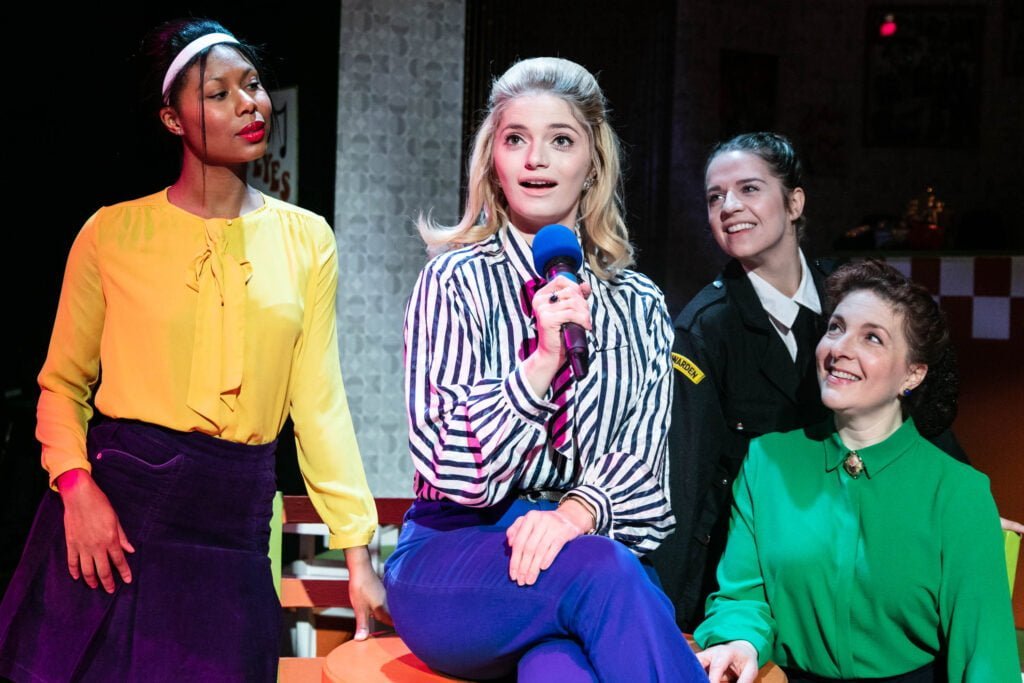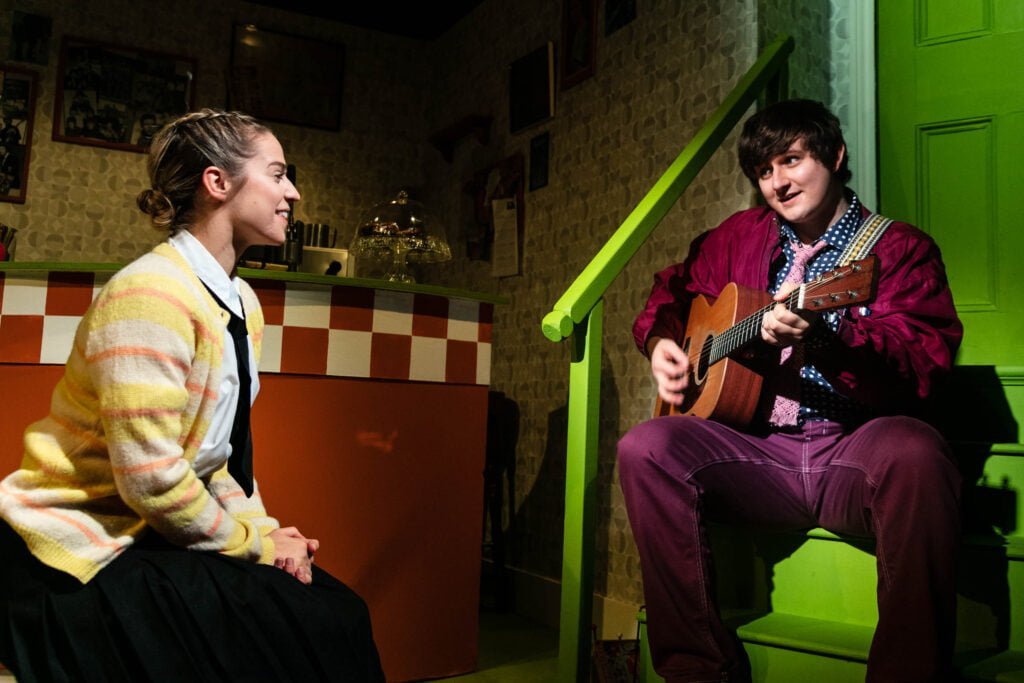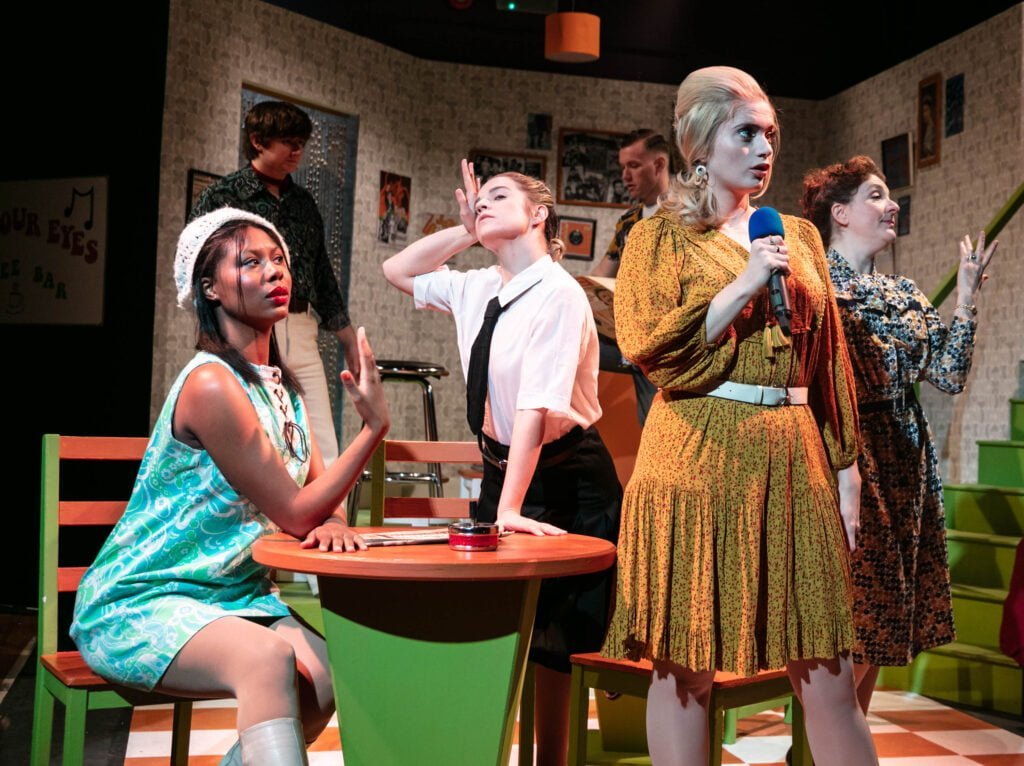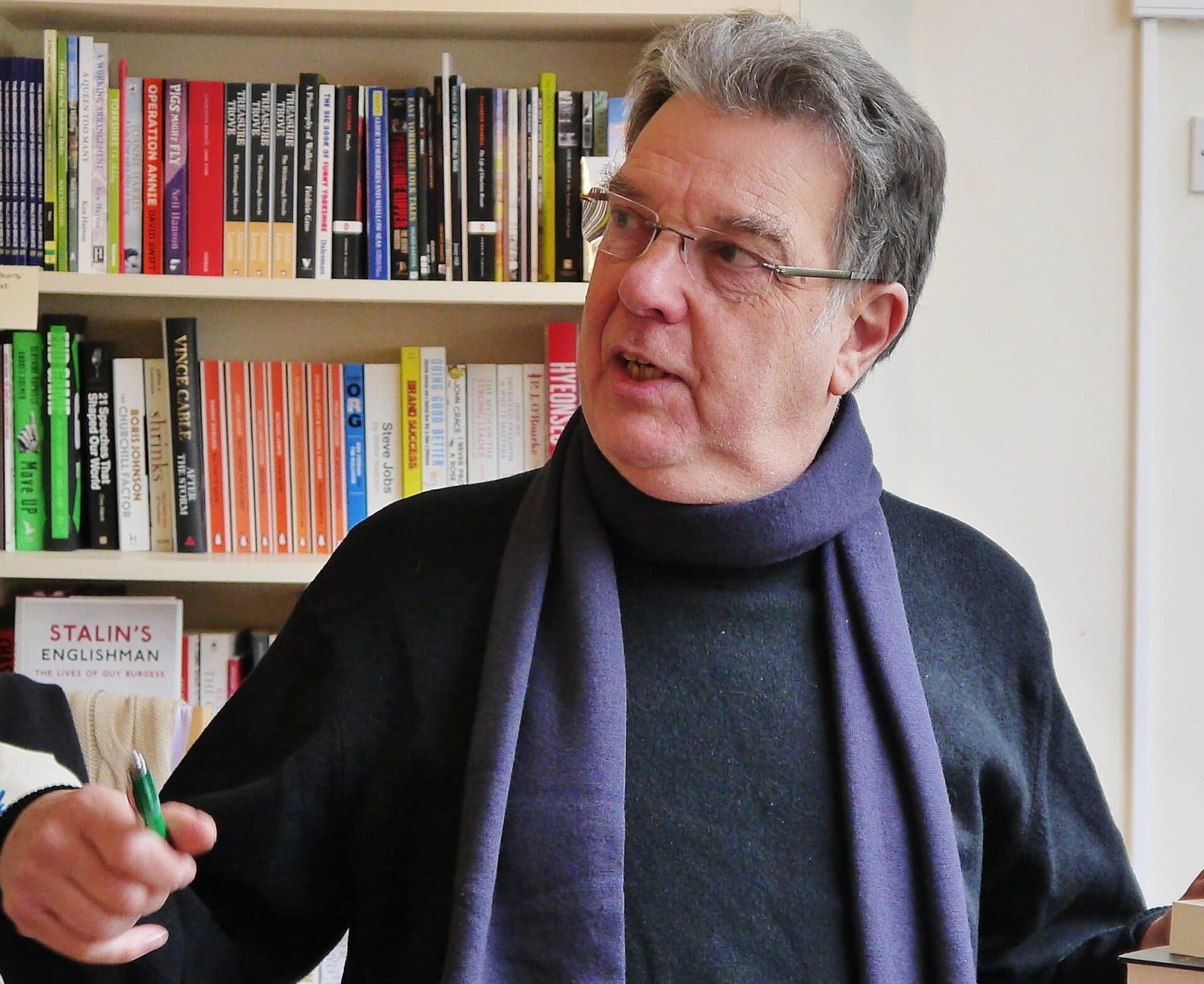The Swinging Sixties
“I think I bought my first pair of flares in Carnaby Street and I enjoyed meeting American GIs at the Flamingo Club, an amazing music venue in Wardour Street.”
John Plews

John and Katie Plews, having spent the last 25 years of their working lives turning Upstairs at the Gatehouse in Highgate Village into the successful and much-loved community theatre it is now, are retiring in February and want to go out on a high. So this year’s Christmas show, Summer in the City, is a delightful, sensitive, affectionate, bouncing and evocative sixties musical, which had the first night audience clapping and swaying to the music and shouting for more.
Say what you like about the sixties, and most of us do, the music was rather special, and some of it came out of the Two I’s Coffee Bar in Soho’s Old Compton Street. This legendary establishment is lovingly recreated on the stage, thinly disguised as the Four I’s. Set designer Ruby Boswell Green has rearranged the flexible Gatehouse space so that the performance takes place in the middle, with the audience banked on two sides. At one end of the performance space is a bar and an expresso machine, and at the other a live band.
The show is about the music, the fashions, the innocence and the delusions. It consists of a succession of iconic sixties songs, strung together with just enough of a plot to sustain our interest in the characters, and not so much as to distract us from the real point of the evening, which is the music.

The selection of songs contains something for every admirer of sixties music, though it’s constrained by the curmudgeonly record companies who now own the output of the Beatles and the Rolling Stones, and won’t let anyone sing them.
The sixties are in danger of turning from decade into myth. Young men and women sometimes think they have caught the mood of the decade by wearing flared trousers with iron hard creases and saying “peace and love man.” But the writer of Summer in the City, journalist and playwright Jennifer Selway, and John Plews, who directed it, are authentically children of the sixties. They were there. I could see the difference that made, because I was there too.
For some, the sixties really began in 1956 with John Osborne’s Look Back in Anger; to others, it started when the Beatles released “Love Me Do” in 1962. By then the oldest of the baby boomers were fully seventeen years old, and soon they were to know everything there was to know, from the secrets of the universe to the correct way to roll a joint.
The short sixties – from the release of “Love Me Do” to the student sit-ins and the Paris evenements of summer 1968 – was a wonderful time to be young. People took the young seriously for the first time, which was good. But the young took themselves seriously, which was less good.

For that was the era of the cult of the young, brilliantly captured in a moment in Summer in the City when one character bemoans her persistent lack of success and fame: “I’m not getting any younger. I’m nearly 21.”
It’s one of several lines designed to provide the audience with a knowing chuckle. Here’s another. An American asks a young woman who wants to go to art college, but can’t afford to, whether you have to pay tuition fees in Britain. She’s horrified at the idea: “Then no one could afford to go to college.” The same American thinks rock and roll is a passing fad: “Are the Rolling Stones going to be rocking and rolling in their seventies?” Of course not; what an absurd idea.
The energetic and accomplished cast sing, and dance, and act, and charm their way through the evening. For me the standout is the Four I’s proprietor Hetty (Helen Goldwyn), a Jewish matriarch based, apparently, on John Plews’s mother, who keeps dropping Yiddish words into the conversation, at one point conflating brown sugar with meshugge (which means mad.)
Liverpudlian Bobby (Harry Curley) brings his guitar on stage for simple and delightful renderings of ‘Ferry Cross the Mersey” and “I’m a Believer”. The three young women, Joanna (Eliza Shea), Cassie (Candis Butler-Jones) and Vera (Elizabeth Walker), tug our heartstrings with their naïve ambition and belt out their songs with tuneful gusto – the show opens with Hetty singing “Downtown”. The American, Sam (Connor Arnold), all slicked down hair and brash ambition, reminds us that male chauvinism was far from dead in the sixties.
But in the end, of course, all is well. “I do love a happy ending. Mazel tov” says Hetty. It could be John and Katie Plews, as they take leave of their theatre and hand over to their current theatre manager Annlouise Butt and her partner Isaac.


Francis Beckett is an author, journalist, playwright and contemporary historian. He was the 2009 winner of the Ted Wragg Award for lifetime achievement in education journalism.
His latest two plays are A Modest Little Man (about Clement Attlee) and Vodka with Stalin.
Musical Numbers
Downtown
Boys
Big Time Operator
Will You Love Me Tomorrow
Dedicated Follower of Fashion
The Shoop Shoop Song
The Clapping Song
Ferry ‘cross the Mersey
Because
Bookie Woogie Bugle Boy
Nut Rocker
Summer in the City
First Cut Is Deepest
SOS Stop Her on Sight
Don’t Worry Baby
I’m a Believer
Bobby’s Girl
Don’t Throw Your Love Away
I Only Want To Be With You
It Takes Two
Lost in London
Land of 1,000 Dances
Production Notes
Summer in the City
Written by Jennifer Selway
Devised and Directed by John Plews
Cast
Starring:
Connor Arnold
Candis Butler Jones
Harry Curley
Eliza Shea
Helen Goldwyn
Elizabeth Walker
Creatives
Director: John Plews
Set Designer: Ruby Boswell-Green
Choreographer: Aimee Leigh
Musical Director: Curtis Lavender
Musical Supervisor: Kevin Oliver Jones
Lighting Designer: Aaron Dootson
Costume Designer: Jean Gray
Information
Running Time: Two hours with an interval
Booking until 15th January 2023
Theatre:
Upstairs at the Gatehouse
Highgate Village
London N6 4BD
Box Office: 020 8340 3488
Website: upstairsatthegatehouse.com
Tube: Highgate
Reviewed by Francis Beckett
at Upstairs at the Gatehouse on 16th December 2023
